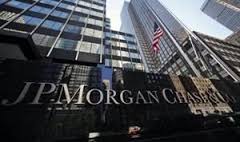 Government has disbursed Rs 1,433 crore up to March under the interest subsidy scheme to exporters, the Commerce Ministry today said.
Government has disbursed Rs 1,433 crore up to March under the interest subsidy scheme to exporters, the Commerce Ministry today said.
The Centre’s interest equalisation scheme, announced last December, reduces cost of capital by allowing 3 per cent interest subsidy on pre and post-shipment rupee export credit to eligible exporters.
“Indian exporters pay high rate of interest on the capital borrowed… all products manufactured and exported by SMEs (are) eligible. Up to March 2016, benefit to the tune of Rs 1,432.90 crore has been passed on to eligible borrowers,” the ministry said in a statement.
Enlisting steps to improve ease of doing business and boost exports, it said the ministry has taken several steps.
Number of mandatory documents required for exports and imports have been reduced to three for each segment. Earlier 7 documents were required for exports and 10 for imports.
“Exporter can now file online applications for IEC (import export code), Advance License, MEIS (merchandise exports from India scheme), SEIS (services exports from India scheme), pay application fee online and check status of their applications,” it said.
To spread awareness about benefits of free trade agreements, it said an ambitious outreach programme has been launched to reach out to exporters located in the 34 major export clusters/cities.
“The programmes focus on training exporters to utilise the FTAs, taking inputs from exporters on FTAs under negotiations for example Regional comprehensive economic policy (RCEP),” it added.
It said the efficacy of these initiatives is reflected in the fact the annual trade data indicates the share of manufacturing sector in India’s total exports has increased from 64 per cent in 2014-15 to more than 69 per cent in 2015-16.
In terms of trading across borders, India is ranked at 133rd out of 189 economies, according to the World Bank’s report on ease of doing business.
Source:http://economictimes.indiatimes.com/articleshow/53178132.cms





 g,” said Mayank Rastogi, partner and leader for PE at consulting firm EY.
g,” said Mayank Rastogi, partner and leader for PE at consulting firm EY.